April 3, 2013
Who said there’s no such thing as free lunch? On the first day of GDC (March 25th, 2013), YetiZen and the UK Trade & Investment opened its doors and offered free lunch to all GDC attendees! Attendees were able to enjoy some nice hot meal while meeting UK game studios, middleware, platform, and services companies that were invited to showcase their products by UKTI.
Companies that were showcasing:

Food is served!

Attendees checking out the showcase companies

Valuable networking opportunity while enjoying lunch!
To see more photos please visit Facebook page
Comment on this post - or - See the whole blog
April 3, 2013
Hey all you awesome peeps! Hope you had an excellent and productive GDC week and are on the road to recovery! We would like to thank all those that attended our Yetis on Ice GDC party on March 26th at Ruby Skye. It was great meeting new faces and reconnecting with old friends. Now that you’ve had time to thaw out, here are some photos from the party!




View the complete album on our Facebook (Part 1, Part 2 and Part 3)!
Comment on this post - or - See the whole blog
March 30, 2013
At this point you have probably seen the press and highly critical social media coverage regarding alleged dancers at the YetiZen party. As the CEO of YetiZen, I wish to make the following statements.
Read the full official statement…
Comment on this post - or - See the whole blog
December 10, 2012
By Sana Choudary, YetiZen CEO
Success is measured not only by identifying untapped markets ripe for the picking, but also by recognizing the emergence of new ones arising from changing demographics, cultures, and technology. Foundation Games leads the way in the migration by hardcore gamers away from the age-old console-based dominance towards the mobile platform, and does it with style.
A clear transition is in progress: mobile games now get more playtime than console games. This is not because people are playing console games any less, but mobile games are taking over more of our discretionary time that previously used to be used for books, TV and other activities. People are spending 18% of their game time on console games compared to the 33% they spend on mobile. The $2 billion casual-core or core market consists of those hardcore console gamers demanding a richer, more fulfilling experience on their mobile devices rather than the basic, shallow titles which tend to wow new gamers. These users are ready for a deeper game experience.
Continue to page 2 ->
Comment on this post - or - See the whole blog
December 7, 2012
By Sana Choudary, YetiZen CEO
At YetiZen, our Accelerator portfolio companies break boundaries and kick through the limitations of existing markets in the game industry. Unusual Studios is no exception. Unusual unites brands and the sports they love together in a smart and scalable way on mobile and social platforms, delivering the sports-game experience to a massive, energized audience.
Imagine for a moment: it’s the end of a thrilling match and sports fans are beginning to file out of the stadium. Viewers at home turn off their televisions and bars close as citizens return to their regular, mundane lives. Adrenaline was high just a few moments ago, yet now the cathartic release of post-game excitement is half-heartedly accepted by all. Fans yearn for the next game, drudging through an entire week devoid of the rush of seeing their teams on the field in a battle of wits and athleticism.
If you’re a sports fan, you’ve probably experienced this all yourself. After the game ends, whether we are in the stands or in front of the TV, we desperately crave more sports-related content. What better way to capture that fervor than through readily accessible mobile devices?
Continue to page 2 ->
Comment on this post - or - See the whole blog
December 6, 2012
By Sana Choudary, YetiZen CEO
According to the Kaiser Foundation, 90% of parents in the U.S. believe that the content their 5-9 year old children are getting is inappropriate. This presents increasingly dire implications as parents try to socialize our kids during their key years of development. With kids spending an ever-increasing amount of time online and interacting with various platforms and devices, the messages they see and hear will come from the media that they consume.
Parents are the providers of that media, and they all demand content that not only eases at least some part of their anxiety but also guarantees positive, teachable messages to their children.
Trying to deliver to this big, demanding market by producing games that seem to fulfill the need is an old idea. These attempts have failed due to misguided approaches: acting as a game factory instead of a game franchise. The key to avoiding these failures is knowing the difference.
Continue to page 2 ->
Comment on this post - or - See the whole blog
November 29, 2012
By Sana Choudary, YetiZen CEO
We are often asked why we chose Selfpubd for the YetiZen accelerator program. Our answer-returning independence to indies!
Successful Indie game studios all eventually encounter the same dilemma. When it’s time to publish, many will place their bets on big-name publishers that have the financial resources and supposed expertise available to push the product to a successful release.
But signing with a publisher for an Indie game studio has always been a high risk, high cost decision. The time and money put into marketing, testing, and distribution can vanish instantly with the wrong publisher. They also tend to demand the rights to the IP, which can potentially cost a studio its control over crucial aspects of the game’s production and ultimately destroying the brand’s image if poorly handled by the publisher.
Basically, sell-out or lose-out?
Big publishing companies can create big problems, so it’s abundantly clear that the Indie development industry is in desperate need of a low risk, low cost testing and publishing platform.
Continue to page 2 ->
Comment on this post - or - See the whole blog
July 4, 2012
2 weeks ago I wrote about the 5 philosophies that are the fundamental building blocks of all game startups. One of those philosophies was to avoid the nude beach of pitching.
To recap a nude beach pitch is one overflowing with information without adequately establishing context or relevance for the audience[1]. In the last year and a half I have tested and iterated on various frameworks to solve this problem. What has worked best is teaching entrepreneurs three fundamental neuroscience findings. These give entrepreneurs the chance to hit the ground running as well as develop a vocabulary for the items within their pitches that we iterate on together every week for the 3 month acceleration period.
They are:
- creating messaging for lower and higher brain
- utilizing the brain’s propensity for nexting
- recognizing the limitations of short term memory
Creating messaging for lower and higher brain
Broadly speaking the human brain is made up of three separate parts that evolved at different times in history. The first is the reptilian brain. When faced with a new piece of information such as your pitch it decides if it should 1) fight/flight 2) mate 3) or ignore.
The second part and third parts of the brain are the limbic system and the neocortex. These are responsible for memory formation (limbic) as well as planning, reasoning and other higher functions (neocortex). When most of us plan our pitches we are doing so primarily through our neocortex. We make the mistake of assuming that the listener is also listening with their neocortex. BIG MISTAKE!
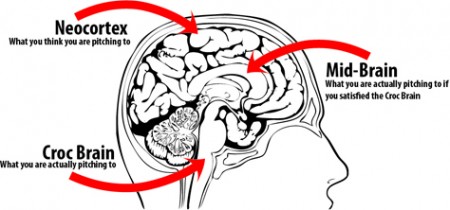
No new information gets to the neocortex without passing through the reptilian brain and limbic systems first. Our modern social context prevents the obvious version of reptilian brain responses, after all your pitch is not the same as the sound of an approaching predator so it is unlikely that your investors will get up and pick a physical fight if you inadvertently activated their fight response.

What is likely is that you will be faced with disruptive behaviors, objections and lack of interest—often despite the fact that you may have dealt with some of the objections in your pitch or (my personal favorite) their questions show a complete misunderstanding of your product or business.
To prevent the investors’ reptilian minds from hijacking the movement of your wonderful pitch message to the limbic system and neocortex you must make sure your initial pitch[2] is:
- big picture and clear—abstractions, details confuse the reptilian brain and tend to ignite the fear response that understanding will take significant mental resources that the reptilian brain likes to avoid
- novel—but not too novel (you will understand this more in the nexting section coming up). If the information the reptilian brain is hearing is not new it will ignore it. Before it passes information to the limbic system it must view the information as both positive and novel.
A well-done pitch is able to balance the above needs in interesting and creative ways while managing the implications of two other principles of how the brain works—nexting and limited short-term memory.
Continuing ->
Comment on this post - or - See the whole blog
July 3, 2012
Guest post from Simon Newstead, CEO of Frenzoo a YetiZen Accelerator portfolio company

It’s not often you get to hear from a game designer whose work spans multiple genres, from blockbuster social games like Farmville while at Zynga through to girl games hits like My Horse for the iPad and many more.
Raymond Holmes of MunkyFun gave a talk at the YetiZen Innovation Lab last night on the different games he has designed and what he learned from them:
1/ Minimum viable product can be very “minimum” if you’re early
 Farmville was pulled together in an incredibly short amount of time and with a very small team. It went to show that a MVP can be very “minimum” and still succeed, particularly in the era of freemium and games as a service with fast iteration post launch. He cautioned that it only works if the market is new, but given all the rapid evolution in gaming platforms these days there are likely to be plenty of situations where that remains the case - there are plenty of new markets that don’t even exist yet in gaming.
Farmville was pulled together in an incredibly short amount of time and with a very small team. It went to show that a MVP can be very “minimum” and still succeed, particularly in the era of freemium and games as a service with fast iteration post launch. He cautioned that it only works if the market is new, but given all the rapid evolution in gaming platforms these days there are likely to be plenty of situations where that remains the case - there are plenty of new markets that don’t even exist yet in gaming.
2/ Learn to think from a user point of view
 One of his early gigs was helping design Barbie Team Gymnastics. The game did well and taught him “the important ability to design from a player point of view”. It was a game that clearly he wouldn’t enjoy playing himself, but he learned a lot about the actual players who enjoy that type of game and how they play and interact. That resonated with my own personal experience in designing Style Me Girl.
One of his early gigs was helping design Barbie Team Gymnastics. The game did well and taught him “the important ability to design from a player point of view”. It was a game that clearly he wouldn’t enjoy playing himself, but he learned a lot about the actual players who enjoy that type of game and how they play and interact. That resonated with my own personal experience in designing Style Me Girl.
Lesson 3 ->
Comment on this post - or - See the whole blog
May 2, 2012
Hello everyone,
With great pleasure we would like to introduce you to YetiZen round 3 companies.

OKeez
Control games with your touch device!
OKeez is the creator of controller technologies that allow you to use your smartphone and tablet to control any application or game on any screen anywhere. The first vertical Okeez is focusing on is the MMO games market. It is currently in closed beta with its Star Wars The Old Republic tablet controller and talking to several other major MMO game publishers to finalize partnerships.
Okeez is based in Belgium and has received seed funding.
Excited by the vision? Feel you can help them in design, monetization and setting up relevant partnerships? You can reach them on Twitter @Chris_OKeez

Frenzoo
Games with Style!
Frenzoo is pioneering 3D lifestyle games for women, under the brand Me Girl. Their first game “Dress Me Girl” is the world’s first 3d fashion game on mobile and grew to over 300,000 users organically in its beta, and is launching on Android, iOS and Kindle Fire. Behind their games is a flexible avatar technology and creation platform that brings characters to life.
Based in the US and Hong Kong, they are backed by the co-founders of Skype and love all things creative and fun.
Come play at http://www.megirl.com

RivalMe
RivalMe is WordsWithFriends for Trivia. Compete on the field of knowledge and earn Eternal Bragging Rights! Have a Battle of Minds with your friends to see who knows the most about your favorite subjects, from TV shows to sports to hundreds of other topics. Play with friends, at a bar, or on your own on ANY DEVICE- iPhone, Android, iPad/Tablet, Facebook, browser or TV. Go to RivalMe.com and start right away!
RivalMe is the world’s leader in social mobile trivia. Our artificially-intelligent Smart Gaming Engine(TM) creates great questions in subjects players like based on their social graphs and previous answers.

Gametize
Social media marketers spend more $3 billion yearly. However, more than 50% of their consumers remained uninterested and don’t notice these campaigns, leading to lower brand awareness and recall.
Gametize creates digital platforms that increase audience engagement through gamification. Its flagshop product, GameMaki, is a white-label marketing platform for marketers to increase the engagement with real world challenges such as “wear green to Starbucks”, which not only brings feet to the locations itself, but also spread buzz and excitement to consumers and turn them into fans.
Anyone can claim these fun, social challenges anytime, anywhere, for bragging rights, points and virtual items that can become discounts or giveaways. Coupled with game dynamics such as team plays and leader boards, these fun, social challenges not only enable consumers to interact with the brands, but also amongst each other. Marketers using GameMaki can publish their campaigns on iOS, their own websites or Facebook page, and http://gamemaki.com. The Android app will be launched in June 2012.
Accept the challenge to be our partner for epic wins! http://challenged.at/partnership or drop us a mail at [email protected]! Join us in our journey to be the future of gamified marketing.
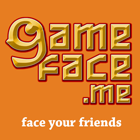
GameFace.me
GameFace.me makes games starring you and your friends. They use existing social network data to put faces, personalities, and relationships instantly in the game. So when you play a GameFace.me game, you might be rescuing your wife from a zombie horde of your college buddies or saving the world from your evil ex-boss.
Give it a try today by signing up at www.gameface.me and playing 4 Gameface games in the Apple app store: ZombieFace, PuppetFace, and NomNomFace.
We would love to hear your feedback! For comments and partnership inquiries, please contact us at [email protected]

Emota
70 million grandparents in the US spend $23 billion a year on toys and gifts for their grandkids. It is one of the fastest growing yet underserved markets.
Emota is tapping into this market, by introducing a series of apps and internet-connected toys that let the whole family come together and share intimate moments. For example, a child can hug an Emota-powered teddy bear, and his grandma will see the gesture on her TV screen halfway across the world. When it comes to personal expression, that’s a game-changer!
After establishing Emota in the grandparent market, Emota will rapidly expand into other relationship categories.
Please visit http://www.emota.net for more information.
Comment on this post - or - See the whole blog







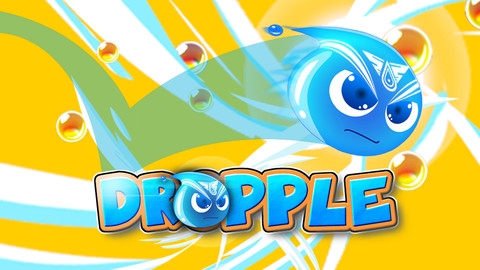

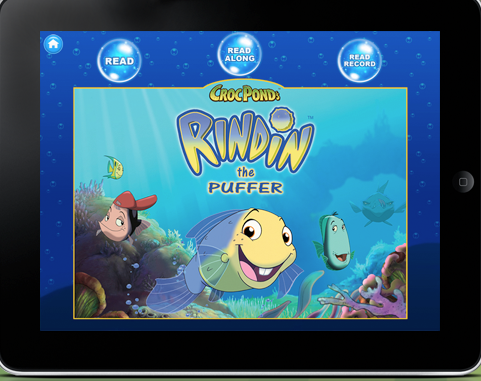
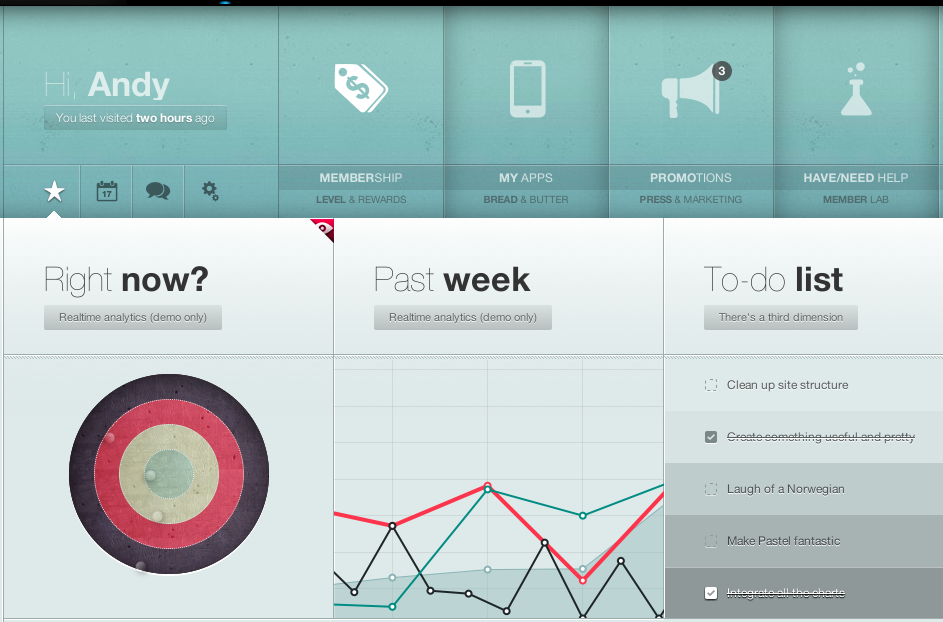



 Farmville was pulled together in an incredibly short amount of time and with a very small team. It went to show that a MVP can be very “minimum” and still succeed, particularly in the era of freemium and games as a service with fast iteration post launch. He cautioned that it only works if the market is new, but given all the rapid evolution in gaming platforms these days there are likely to be plenty of situations where that remains the case - there are plenty of new markets that don’t even exist yet in gaming.
Farmville was pulled together in an incredibly short amount of time and with a very small team. It went to show that a MVP can be very “minimum” and still succeed, particularly in the era of freemium and games as a service with fast iteration post launch. He cautioned that it only works if the market is new, but given all the rapid evolution in gaming platforms these days there are likely to be plenty of situations where that remains the case - there are plenty of new markets that don’t even exist yet in gaming. One of his early gigs was helping design Barbie Team Gymnastics. The game did well and taught him “the important ability to design from a player point of view”. It was a game that clearly he wouldn’t enjoy playing himself, but he learned a lot about the actual players who enjoy that type of game and how they play and interact. That resonated with my own personal experience in designing Style Me Girl.
One of his early gigs was helping design Barbie Team Gymnastics. The game did well and taught him “the important ability to design from a player point of view”. It was a game that clearly he wouldn’t enjoy playing himself, but he learned a lot about the actual players who enjoy that type of game and how they play and interact. That resonated with my own personal experience in designing Style Me Girl.




